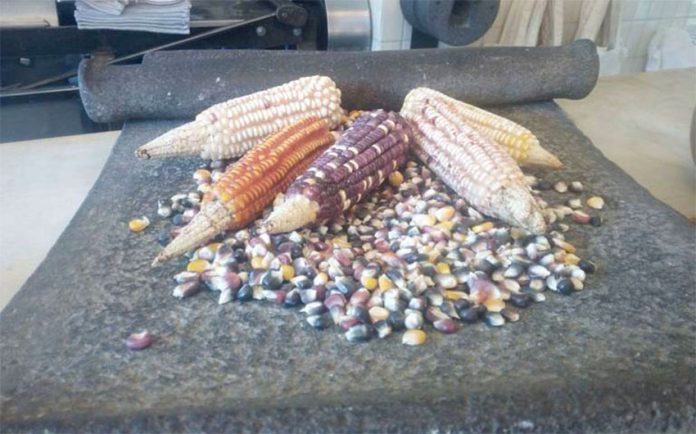A controversial federal law to promote and protect native corn was approved recently by the Senate, ending the possibility of what one supporter calls the “intellectual plundering” of indigenous communities.
One of the bill’s sponsors, Morena party Senator Ana Lilia Rivera, stated that one of the motives behind the law was “… the debt that [Mexico] still has with indigenous communities since the implementation of the North American Free Trade Agreement [NAFTA] in 1994.”
The bill seeks to guarantee the preservation and promotion of native Mexican corn varieties against competition from modern hybrids and genetically modified corn.
All corn produced and sold in Mexico will be labeled to indicate how it was produced. “Native corn” applies to crops created solely by traditional agricultural methods while “Hybrid corn” applies to those grown using more modern agricultural techniques, which have caused concerns related to nutritional value.
“Genetically modified corn” refers to those varieties that have been developed to be resistant to certain kinds of infestations and adverse climate conditions such as drought.
The law designates over 60 varieties of corn developed with traditional and indigenous agricultural methods as part of Mexico’s national heritage, making its conservation a human right on par with nutrition, health and culture.
The law was proposed and passed because of the coming implementation of the USMCA, the new trade agreement between the United States, Mexico and Canada, which will replace NAFTA. The latter allowed large quantities of cheaper, foreign corn, principally from the U.S., into Mexico. Today, Mexico produces only a fraction of the corn it consumes.
Genetically modified corn and modern hybrid varieties are seen as a concern because of the possibility that foreign companies can patent seed varieties that were already developed under traditional Mexican agriculture. Victor Manuel Chima of the Fray Francisco de Vitoria Human Rights Center calls such a possibility a “… a kind of intellectual plundering of [indigenous] communities.”
Senator Rivera asserted that because of this new law “… never, ever, will anyone be able to patent or create economic or commercial rights [that would take precedence] over the human right to corn.”
Another concern is the contamination of native varieties by crossing them with foreign, genetically modified corn. The law establishes the Consejo Nacional del Maíz (National Corn Council, or Conam) to document and establish regions where native corn varieties are grown, and from this information create policies to support such production.
One objection to the law came from the Consejo Nacional Agropecuario (National Agriculture Council) which believes it will prohibit the cultivation of naturally bred hybrids within Mexico along with genetically modified corn. Others point out that the consumption of genetically modified corn has not been proven to be harmful to human health.
Chima stated that despite the new law native corn is still in danger because the communities that grow these varieties “have been marginalized for many years.”
He said, “With this law, we look to replace the importation of tonnes of corn from the United States with the development of public policies to guarantee production, not only for consumption, but also to guarantee that this corn is nutritious and of quality.”
Sources: El Sol de México (sp), El Universal (sp)
